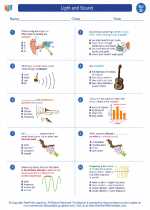Vitamin A
Vitamin A is a essential fat-soluble vitamin that plays a vital role in various bodily functions, including vision, immune system, and cell growth. There are two forms of vitamin A: preformed vitamin A and provitamin A carotenoids. Preformed vitamin A is found in animal products, while provitamin A carotenoids are found in plant-based foods.
Sources of Vitamin A
- Preformed vitamin A: liver, fish liver oils, eggs, and dairy products
- Provitamin A carotenoids: carrots, sweet potatoes, spinach, kale, and other colorful fruits and vegetables
Functions of Vitamin A
Vitamin A has several important functions in the body:
- Vision: Vitamin A is essential for the proper functioning of the retina and low light and color vision.
- Immune system: It plays a crucial role in maintaining the integrity of the skin and mucous membranes, which act as barriers to infection.
- Cell growth and differentiation: Vitamin A is involved in the growth and specialization of cells, particularly in the development of the embryo and fetus.
Deficiency and Toxicity
A deficiency of vitamin A can lead to night blindness, increased susceptibility to infections, and in severe cases, xerophthalmia (a condition that can lead to blindness). On the other hand, excessive intake of vitamin A can lead to toxicity, which can cause symptoms such as nausea, dizziness, and even liver damage.
Recommended Intake
The recommended dietary allowances (RDAs) for vitamin A vary by age and gender. For example, the RDA for children ages 4-8 is 400 micrograms per day, while for adult males it is 900 micrograms per day and for adult females it is 700 micrograms per day.
Quiz
- What are the sources of preformed vitamin A?
- What is the function of vitamin A in the body?
- Vitamin A is essential for the proper functioning of the _________
- Vitamin A plays a crucial role in maintaining the integrity of the _________
- What are the potential consequences of vitamin A deficiency?
- Night blindness
- Xerophthalmia
- Increased susceptibility to infections
[Vitamin A] Related Worksheets and Study Guides:
.◂Science Worksheets and Study Guides Fourth Grade. Light and Sound

 Worksheet/Answer key
Worksheet/Answer key
 Worksheet/Answer key
Worksheet/Answer key
 Worksheet/Answer key
Worksheet/Answer key
 Vocabulary/Answer key
Vocabulary/Answer key
 Vocabulary/Answer key
Vocabulary/Answer key
 Vocabulary/Answer key
Vocabulary/Answer key
